by Zmkan Ali Saleem & Mac Skelton
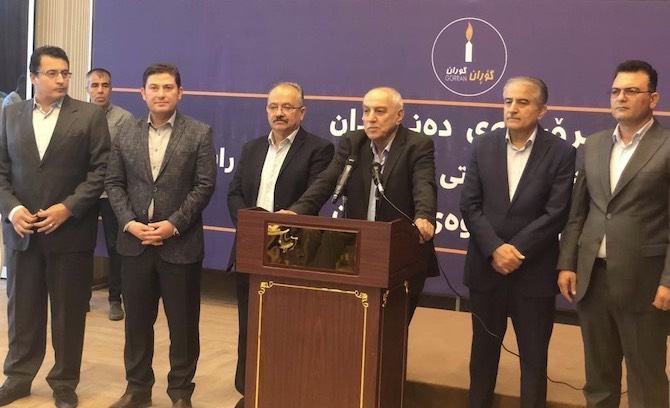
As mass protests calling for systemic change continue in Baghdad and across the south, Iraqi Kurdistan is eerily quiet. The streets of Sulaymaniyah and Erbil show no signs of popular unrest. If anything, the majority of Kurds hope that Prime Minister Adil Abdel-Mahdi will weather the storm and remain in power, as he has proven largely conciliatory towards Kurdish demands. While the establishment parties in Baghdad are in the midst of the greatest challenge to their existence since 2003, the two dominant Kurdish parties – the KDP and PUK – now enjoy largely uncontested hegemony over the political and security apparatus in Kurdistan. Despite the turmoil of ISIS and the failed independence referendum of 2017, the Kurdish duopoly appears as cohesive and dominant as ever.
It was not always so. In 2009 a little known party called the Change Movement (Gorran) managed to mobilise hundreds of thousands of Iraqi Kurds into a formidable opposition force. Gorran shocked the Kurdish political establishment by gaining 25 seats out of 111 in the regional election of that year, with the two major Kurdish parties receiving their first real challenge in decades of uncontested rule. The implications were immediately felt, especially in Sulaymaniyah, where the PUK found itself fractured, disorganised, and with no clear vision of how to recuperate. Gorran was, at its core, a PUK splinter group. However, this did not mean the KDP welcomed the news either. For the first time, the Kurdish parliament which had always operated as a rubber stamp for the two parties, now became a site of heated contestation.
More than simply a matter of shaking up the distribution of power, Gorran’s resounding entrance into the political scene ruptured the sense of inevitability around the two ruling parties. Between 1992 and 2003, it would be unthinkable for any organised political force to challenge the KDP-PUK hegemony. Each party had its respective regional strongholds on lockdown, with Erbil entirely under the control of the KDP, and the PUK enjoying total dominance over Sulaymaniyah. Between 2003 and 2009, the PUK and KDP entered into a power-sharing agreement which allowed members of the two parties to hold a symbolic presence in both major cities; however, this slight opening toward political pluralism was still very much a two-party affair. While individual activists and political figures occasionally spoke out against the duopoly amidst the very real threat of imprisonment and torture, no region-wide movement had mobilised a wide cross-section of society against the ruling elites.
Anti-establishment Rhetoric
After the 2009 elections, parliament became for the first time a subject of widespread interest in both political circles and the population at large. Gorran used its platform to address previously unspoken affairs, such as the parties’ appropriation of funds sent to the region by the government in Baghdad after 2003. ‘These public funds,’ party leader Nawshirwan Mustafa stated, ‘were appropriated and used by the PUK and the KDP to buy peoples’ loyalties and votes’. Gorran’s populist rhetoric was centred around one key concept: corruption. The party called out the KDP and PUK monopoly over positions and resources; a lack of transparency in receiving and spending public funds; funds being directed toward the pockets of Politburo members and their allies; and a general disinterest in providing opportunities for those who fell outside the duopoly’s networks of power, generating widespread inequality and a growing gap between rich and poor. Moreover, Gorran focused attention on the post-2003 distribution of oil wealth towards the furthering of party interests.
The most damning indictment of the Change Movement struck at the heart of the Kurdish elite’s carefully crafted political narrative. Rather than revolutionary figures bent upon autonomy from a brutal authoritarian state, instead the KDP and PUK were – in Gorran’s assessment – essentially family-run authoritarian regimes. This forceful rhetoric against the duopoly furnished the ground for the 2011 mass protest movements in the KRG, which resulted in a violent crackdown and subsequently an increasingly unified KDP-PUK front against the populists. Gorran once again gained a significant share of the parliament in the 2013 elections, winning 24 seats.
The Roots of Gorran’s Decline
After such a dynamic and reformist start, it was hard to envision that just a few years later Gorran would be limited to a mere 12 seats in the 2018 regional elections, with the remaining core leadership of the party weakened and largely co-opted by the KDP and PUK. This decline is reflected in the rhetoric of Gorran’s current leadership. In an interview, a leading Gorran parliamentarian spoke of reform in largely accommodationist terms: ‘Masrour Barzani has promised to support in implementing our reform agenda that centers on tackling corruption and introducing transparency to public funding and expenditure.’ In other words, Gorran was working with rather than against a leading KDP figure, Prime Minister Masrour Barzani.
The beginnings of this decline can be traced back to 2013, when Gorran found itself totally powerless to stop the extension of Masoud Barzani’s presidential term for an additional two years. This failure highlighted one of the structural weaknesses of the party. The number of seats they had gained in parliament was hugely significant from the standpoint of shifting political discourse, but it was not enough to halt the passing of any law without the agreement of one of the other major parties, who were then temporarily united in opposition to Gorran’s ascent.
This limitation compelled Gorran to seek out a new strategy. After the 2013 elections, the party decided to join the government in alliance with the KDP, which granted them several key positions both in parliament and the executive branch, including the Speaker of the Parliament as well as the ministries of Finance, the Peshmerga, Industry, and Religious Endowments. Gorran’s stated objective in joining the government was to implement a reformist agenda from within, focusing on ending corruption, disassociating party politics from government institutions, and reforming the peshmerga units loyal to the KDP and PUK into a united state force.
This strategy failed dramatically from the beginning. Over two decades of rule, the two dominant parties had consolidated power and loyalty across the four ministries now under Gorran’s control, particularly the finance and peshmerga portfolios. Decisions made at the top level by Gorran-backed ministers would simply not be implemented whenever they contradicted KDP and PUK priorities. The Ministry of Finance – an institution almost entirely controlled by the KDP – provided no space for the Gorran minister to function, ultimately forcing him into such a weak position that he decided to align with his masters. In 2015, the KDP essentially sacked all the Gorran-affiliated ministers. Later in 2017 the KDP re-employed the finance minister, who was now entirely disavowed by Gorran.
Internal Struggles & Co-optation
The most important long-term result of Gorran’s decision to join the government was the shift in the party’s relationship with existing forms of power and patronage. With the rhetorical and institutional firewall between the reformists and the duopoly removed, Gorran soon fell prey to various forms of co-optation by the PUK and KDP. This process started to generate fault lines between various factions of the party. The illness and ultimate death of Gorran’s leader in 2017 intensified the struggle to breaking point.
One faction rallied around Mustafa’s two sons, who had inherited the party’s properties, offices, and media outlets. This faction was soon regarded as anti-reformist and conservative, seeking to push the party towards a more traditional establishment role – and the material and economic benefits that come with it. According to former members of Gorran and independent observers in the KRI, the party has been granted access to lucrative businesses and public projects by the PUK and KDP, all the while maintaining the rhetoric of reform and combating corruption. The other faction strongly rejected the party’s adoption of succession, family rule and nepotism. These members wanted to preserve the ideological purity and reformist objectives of the movement. Ultimately they failed to do so – Mustafa’s sons and their allies won the political battle to control the centre of decision making in the party.
For many of the Gorran faithful, this shift in the structure of power essentially transformed the party from a reformist movement to what a former Gorran leader called ‘a traditional/conservative party similar to the KDP and the PUK.’ By any measure Gorran’s current leadership has moved away from its original anti-establishment stance. After suffering a dramatic defeat in the 2018 elections and only gaining 12 seats in the regional parliament, the party nevertheless decided against forming an opposition, joining the KDP-dominated power sharing government while giving lip service to holding the system accountable. Given previous failures to effect change from within, this decision has intensified questions around the aims of the party.
Relevance to the Current Crisis
Since 2003, Gorran has arguably been the only popular movement in Kurdistan (and perhaps in all of Iraq) to seek systemic change, forming a genuine opposition. Though led by a long-time member of the political elite, the project espoused by Nawshirwan Mustafa was unmistakably directed towards ending the muhassasah and corruption which has characterised both the Kurdish region and federal Iraq since the invasion. The ultimate fracturing of Gorran provides powerful lessons for the ongoing protest movement in Baghdad, which likewise seeks a fundamental and systemic change. Were the protestors able to form themselves into an opposition coalition and even make sizeable electoral gains, this would by no means guarantee sustained influence. The case of Gorran would suggest that remaining an effective opposition movement over time would require not only combating pressures from the existing political blocs, but also from within. Hard decisions around the nature of a durable opposition – and its relationship to the dominant parties – would have to be made without succumbing to internal divisions and co-optation.
*This blogpost is part of the LSE research project ‘Conflict Drivers within the Kurdistan Region of Iraq: The Role of Patronage Networks’ led by Mac Skelton, examining the Kurdistan Regional Government’s patronage networks following the recent dual shocks of 2014 and 2017. This project forms part of the Conflict Research Programme, funded by the UK Department for International Development to provide research and policy advice on how the risk and impact of violent conflict might be more effectively reduced through development and governance interventions.



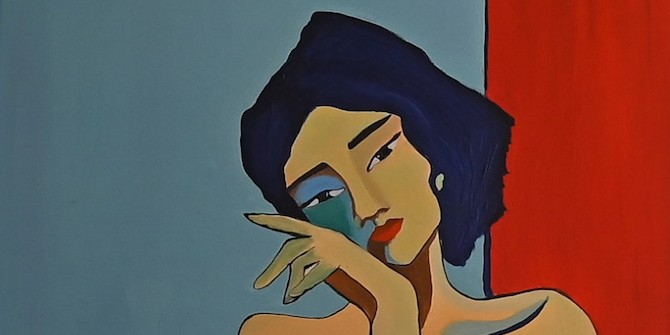
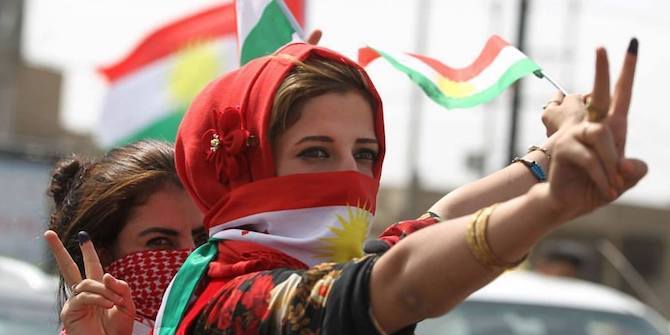
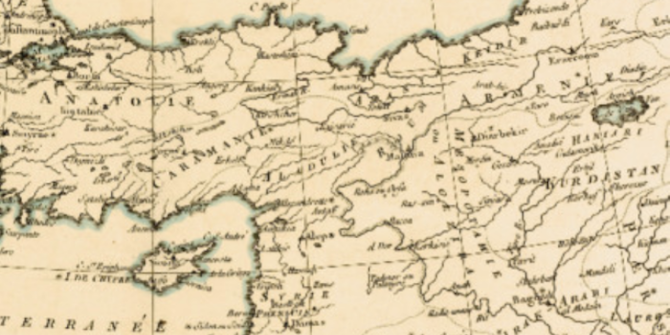
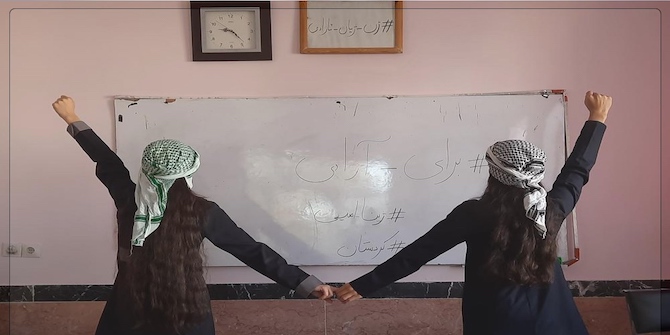
2 Comments